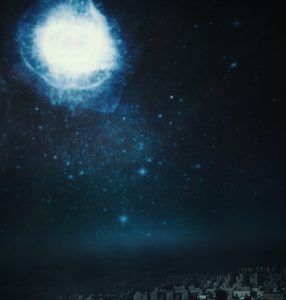
Lately I’ve needed more rest than usual. I had a reactivation of chicken pox, and its treatments drove me to bed. So it seemed fitting to write about rest. God ordained rest. But what does that mean for us?
The Bible talks about several types of rest, each one with a different takeaway.
Rest from work
God rested after six days of creation. The Genesis word for “rest” is shabath (Sabbath). But God did more than take a break. He blessed the seventh day and set it apart as holy (Genesis 2:3). God reminded the Israelites of that when He gave them manna for two days so they wouldn’t gather it on shabath (Exodus 16:22-26). Shabath fundamentally permeated Israel’s legislation, based on God’s fourth commandment to them (Exodus 20:8).
By Jesus’ time, laws about shabath had become so ridiculous that the reason for observing it was obscured. We honor the Sabbath to obey Him and show our love for Him. Sabbath is holy because God our Creator is holy.
Rest from weariness
Our bodies know better than we do when to stop for rest. God created two coordinated processes in us to govern sleep. One is a need-based drive; the other is a circadian rhythm. We can defer or shift the first, but we can’t suppress or change the second.
Perhaps the epitome of rest from weariness is Jesus asleep in a boat during a violent storm. Mark 4 graphically describes an intense time of ministry for Jesus near the Sea of Galilee. Crowds had pressed on Him so much that He got into a boat to teach. It exhausted Him. While on earth, Jesus experienced fatigue like we do. A reminder for us to listen to our body when it’s weary.
Rest from worry
In Mark 4, Jesus’ disciples were tired, too. But they needed rest from their worries. They were terrified they’d perish in the storm. They had fished the Sea of Galilee for years and knew the dangers of its sudden, violent storms. The sea sits seven hundred feet below sea level. When an east wind blows from the eastern mountains and that cool, heavy air blankets the warm air covering the sea, storms arise like those described in Matthew 8:24 and Mark 4:37.
But note what Jesus said before the storm started: “Let us cross to the other side.” He wouldn’t have said that if there had been no way to get there by boat. Jesus travels with us through the darkest, fiercest storms of our lives (Joshua 1:5, Hebrews 13:5). His provision—not our effort—brings us through them and gives us rest from worry.
Rest from wandering
The Israelites wandered in the desert forty years before God allowed their next generation to enter Canaan (Numbers 32:13). Israel had a pattern of wandering from God but returning to Him after being exiled or oppressed. Pagans experienced that, too. King Nebuchadnezzar wandered the countryside, living like an animal for seven years until he honored and praised God as the Most High (Daniel 4:34-35).
Our sin nature makes it easier to wander from God than to press into Him. Psalm 56:8 (BSB) says, “You have taken account of my wanderings.” That Hebrew word means “mental restlessness,” the “tossings to and fro of the mind.” Praise God that He knows all our wandering thoughts and actions—and promises He will give us rest when we come to Him (Matthew 11:28).
Rest from the world
Here’s what’s most exciting. Hebrews 4:1 (NIV) opens with “Therefore, since the promise of entering his rest still stands …” What rest? Something better than Canaan rest. And greater than all other forms of rest.
It’s the rest we’ll experience when heaven and earth are reunited in humanity’s final state of redemption. Heaven and earth have been separated by sin for a long time. Jesus bridged that gap. Now heaven and earth “overlap” wherever people believe in Christ’s redeeming work. But one day all of heaven and earth will become one again—like it was in the Garden of Eden. That’s what authors throughout Scripture describe as “the new heaven and new earth” (Isaiah 65:17 & 66:22; 2 Peter 3:13; Revelation 21:1).
Conclusion
Now a tough question. Does lack of rest reflect unbelief or disobedience? I’m guilty of both. But you and I can embrace all that God intends for us with rest. Praise God for His indescribable gift!





Leave a Comment